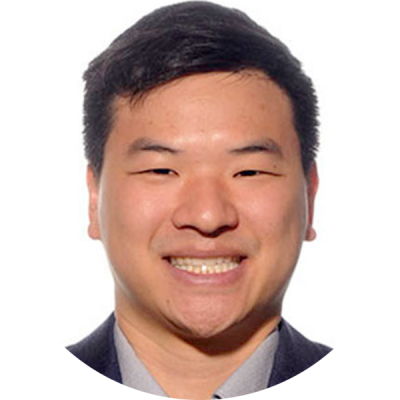
James Meixiong
I performed my thesis research in the laboratory of Xinzhong Dong, Ph.D. With Xinzhong’s guidance, I discovered that bile activates sensory neurons through a receptor called MRGPRX4. This is important because patients who have difficulty excreting bile, such as those with liver damage, experience a profound, whole body itch which is currently untreatable. Our discovery provides better understanding of why this itch occurs and, importantly, identifies a promising therapeutic target to benefit this long-suffering patient population.
Questions & Answers
Why did you choose Johns Hopkins for your work?
I chose Johns Hopkins for my graduate education for the opportunity to work with some of the brightest, most driven students in the world. Interaction with my peers, whether it be hearing their criticisms or leaning on their advice, was not only enjoyable but also important for my personal development. In addition, I chose Johns Hopkins because I’d heard that it harbored an outstandingly collaborative community. In my experience, this was proven to be the case. The project that I undertook required knowledge of multiple fields ranging from clinical hepatology to pharmacology. Because of this, I was forced to rely on the expertise of multiple professors besides my primary mentor. Johns Hopkins is a place where world experts in their field stalk every hallway so it was not hard to find people with the perfect fund of knowledge. However, what I did not expect was just how approachable each and every faculty member would be and how generous they would be with their time despite having busy schedules.
What does receiving this award mean to you personally and professionally? Do you have any connection with the particular award you received?
I feel incredibly lucky to be able to receive this award and am very grateful to the committee members, organizers, and endowers of these awards. While I never set out to do research for awards, it is humbling to be recognized for one’s work and to be in such esteemed company.
What contributed to your project’s success?
People are what drove this project’s success. From those behind the scenes, like support staff and core facility scientists, to those directly involved such as Xinzhong; my thesis committee members Sol Snyder, Alex Kolodkin and Michael Caterina; and my co-authors, Chirag Vasavda principal among them. Without all of their contributions, this project would not have been possible, and without friends and family to keep one sane throughout the process, the whole enterprise would have fallen apart.
What thoughts do you have about Young Investigators’ Day itself, as a celebration of the roles students and fellows play in research at Johns Hopkins?
I am glad for the Young Investigators’ Day and what it represents. Students and fellows are on the frontlines of scientific enterprise, a varied experience where no two days are alike, but where Eureka moments are undoubtedly rare and most days are tedious failure. For the opportunity to contribute to science, it’s already worth it. Still, it’s nice to be celebrated.
What has been your best/most memorable experience while at Johns Hopkins?
My best experience while at Johns Hopkins is not professional but personal. I was lucky enough to meet my wife, Janelle Ho, while we were in medical school together. I could not imagine things turning out any other way.
What are your plans over the next year or so?
I am currently enrolled in the Johns Hopkins MSTP program, with a graduation date set for 2021. Afterward, I plan on furthering my clinical training and hopefully will one day run a successful research group focused on translating bench findings to bedside treatments.
Tell us something interesting about yourself.
I have many hobbies. I was a decent swimmer in high school, good enough to be on an All-American relay but not great enough to swim in college. I enjoy playing poker but mostly break even. I am struggling to write more, including fiction and works completely unrelated to science or medicine.